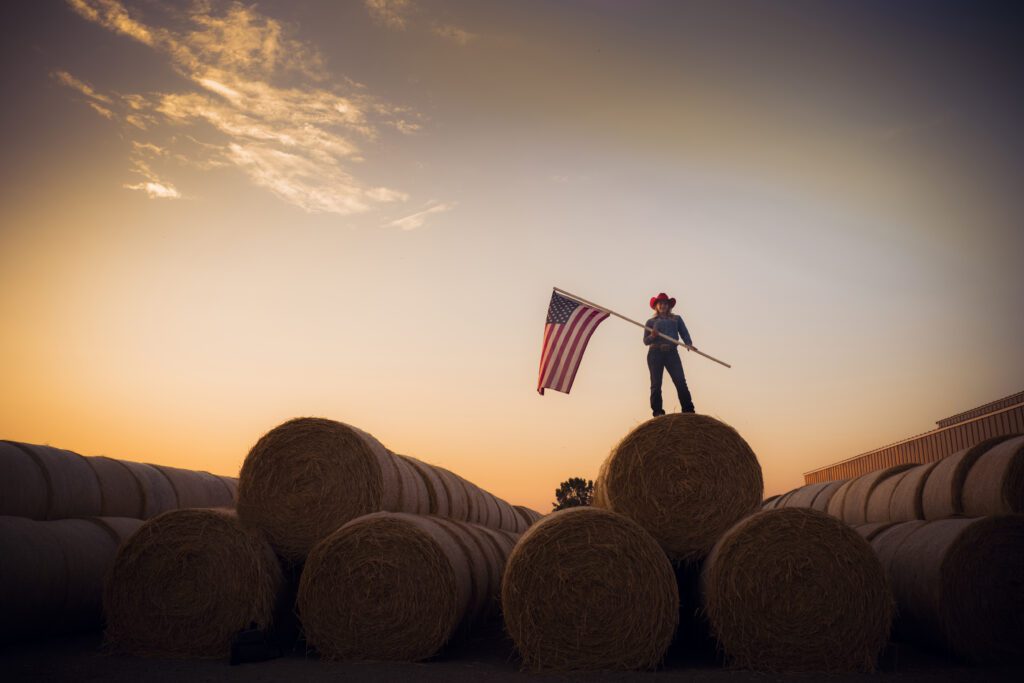Program Trains Veterans in Ag Industries to Ease Transition to Civilian Life
by PAUL CATALA
For the program’s participants, it’s the chance to lay down their weapons and pick up their shovels.
Through the Veterans Florida Agriculture Program, thousands of military veterans have trained, learned the ropes, and become successful farmers, cattle ranchers, citrus growers and other ag-related professionals since its creation in 2014. Veterans Florida is a nonprofit created by the State of Florida to help military veterans transition to civilian life. Veterans Florida provides tools and training for veterans to take advantage of the benefits of living and working in Florida.
Various Veterans Florida career and entrepreneurial programs began in 2015 and since then, thousands have graduated. Each year, Veterans Florida gets about 3,000 direct contacts from military veterans, with about 10 percent of them going through workforce training and another 1,000 per year going through entrepreneur training, according to Joe Marino, Veterans Florida executive director in Tallahassee.
And since 2018, many of those veterans have gone on to prosperous careers in agriculture through the six-month training fellowship that provides veterans and servicemembers comprehensive, hands-on experiences and gives them the knowledge, skills, and abilities to be competitive for careers in Florida’s $149 billion agriculture industry.
The Farmers Program training takes place at the UF/IFAS Research and Education Center facilities across Florida, says Marino. UF/IFAS focuses its research on food safety, crop production, and disease-resistant plants, and VF collaborates with Farmers Program participants to further their career in agribusiness or on a working farm or ranch after completing the training.
Open to veterans and transitioning service members, the Farmers Program pays veterans a $15 per hour stipend through special USDA Funding for veterans in agriculture. In addition, service members in the program retain their active duty pay and benefits through the Department of Defense’s SkillBridge program. Initiated in 2016, that program is for veterans to get civilian work experience through specific nonmilitary industry training, apprenticeships, or internships during their final 180 days of service.
Marino, a 1993 graduate of U.S. Military Academy West Point, says the Farmers Program allows servicemembers to maintain their Department of Defense salaries and benefits while they’re getting their Florida-based agriculture training.
Veterans Florida was created in 2014 as part of the Florida GI Bill, signed by then-Gov. Rick Scott and was the first bill to pass in session that year. From his Tallahassee office, Marino – who served four years active duty and four in the reserves – says Veterans Florida was created to “market the State of Florida across the country to attract and retain transitioning service members and veterans to Florida to increase the state’s veteran workforce.”
Marino says agriculture is a big part of making that happen. He adds that in 2018, Veterans Florida started a pilot program that expanded into a full USDA primary grant award, which began in September 2020 and ended in August, to train 34 veterans in agriculture through the IFAS network. There were military veterans working in cattle ranching, aquaculture, citrus, and other IFAS farm areas.
“(The Agriculture Program) mixes well with (Florida) agriculture because a lot of service members take part in agriculture training and then want to go start their own farms or ranches,” says Marino.
Some of the UF/IFAS Centers at which Agriculture Program veterans may attend include: the Southwest Florida Research and Education Center in Immokalee; Mid-Florida REC in Apopka; Honey Bee Research and Extension Laboratory in Gainesville; Plant Science Research and Education Unit in Citra; University of Florida-Gulf Coast REC in Wimauma; North Florida REC in Quincy; Indian River REC in Fort Pierce; Tropical REC in Homestead; and Range Cattle REC in Ona.
Marino says the feedback Veterans Florida has received regarding the ag program has been positive, with many participants saying they’re grateful for the opportunity. He says he’s heard formerly deployed veterans come back and say they love that they get to build with their hands now.
“A lot of them were sent overseas to do what they needed to do for their country. The opportunity to build and grow in the program, they really enjoy that aspect of it, as well as the other benefits of an agricultural lifestyle,” he says, mentioning many enjoy learning the high-technology aspects of 21st-century agriculture. “They enjoy all those various challenges that are presented by modern agriculture.”
One former service member currently enrolled with the VF Agriculture Program is Travis Farrell of Palatka. He joined the U.S. Army in 2014 and will be discharged in March and as a SkillBridge participant. He says he found out about the Agriculture Program after reaching out to VF about career programs. He says he was told about the UF/IFAS honey bee program, and he became interested, particularly because the University of Florida is close to his home and the possibility of becoming a professional beekeeper or woodworker in the beekeeping industry is appealing to him.
Farrell has been in the Agriculture Program since November through the UF/IFAS on the University of Florida Gainesville campus.
“I have zero knowledge when it comes to agriculture,” says Farrell, 31, a native of Alaska who was raised in Florida. “But my dream is, I want to be a woodworker. I want to potentially make hives and things of that nature.”
Marino says the partnership with UF/IFAS will keep the program going. He also says in the current legislative session, there is a proposal for codifying funding (primary funding for the program was from a USDA grant from 2018 to 2023) at the state level. On Jan. 5, Senate Bill 1666 was filed to put into law what the VF has done with the USDA and has 60 days to be passed.
“So that’s part of how we’re trying to expand the program and maintain it,” says Marino. For information, visit veteransflorida.org/agriculture.

